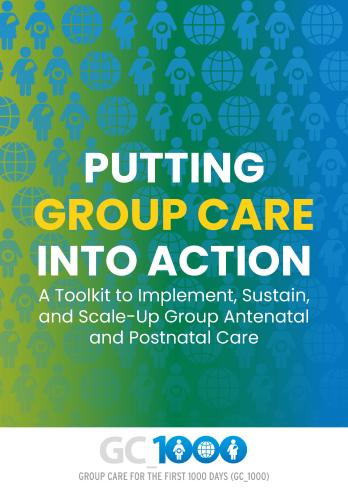
Group care during the first thousand days of life has been shown to transform the delivery of maternal, newborn and child health care and to reduce inequities in services utilisation, improve the quality of services, and make a significant positive impact on the health and wellbeing of mothers, families and children. The first thousand days is a critical life stage, greatly influencing early childhood and setting the trajectory for later development.
There is strong evidence showing the effectiveness of participatory women’s groups for maternal and child health and parenting, including fewer pre-term births, better mental health outcomes, fewer low birth weight babies and increased breastfeeding rates. The evidence suggests that group care is particularly beneficial for marginalized populations, decreases costs to the health care system and improves women’s commitment to antenatal and postnatal visits. However, knowledge of the benefits of this model in low-and-middle-income country settings is limited.
The Children’s Institute has been awarded a European Union grant as part of a multi-country consortium, to test the feasibility of implementing a group care model for expectant parents in a demonstration site in South Africa. The consortium is led by research partners in the Netherlands, including Leiden University, and other countries include Belgium, United States, United Kingdom, Kosovo, Suriname, and Ghana.
The project is located within an implementation research framework. Over a four-year period commencing from 2020, the study will include several processes to adapt the model and test the feasibility of implementing group care in the South African context. A careful evaluation of outcomes and process factors will be conducted, including testing the viability of integrating the model into the existing public health care system.
Lastly, the evaluation data will be examined to extrapolate lessons learnt for the purpose of understanding the elements of the intervention and country-specific implementation strategies that are integral to noted outcomes. Key outputs of the multi-country project are country-specific blueprints for sustained implementation and/or scale-up; and developing a global implementation strategy toolbox for adaptation, implementation and scale-up of the group care model, with a focus on reaching the most vulnerable women and girls.
The Group Care 1000 toolkit, which we were the lead editors of, has gained recognition from the European Commission Innovation Radar as an “excellent innovation”. The toolkit and the Children’s Institute are showcased on the Innovation Radar platforms.
